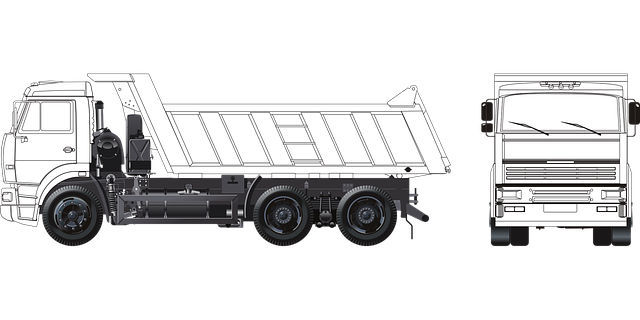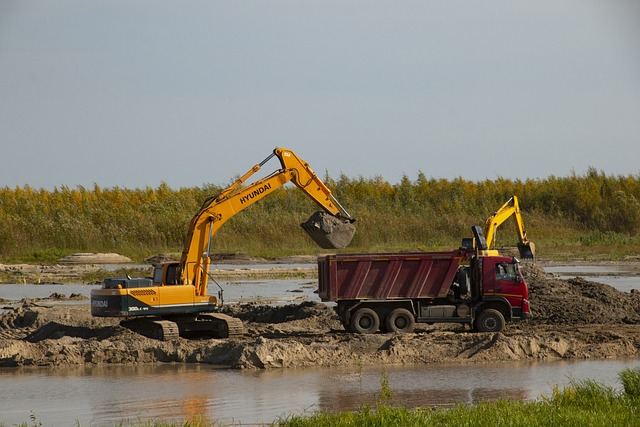Rented Vehicle Insurance: Understanding comprehensive coverage is key. Standard liability insurance in rental agreements has limitations, so consider additional policies for loss, damage, and theft protection. Comprehensive insurance covers non-collision events like natural disasters and vandalism. Review policy details carefully to avoid unexpected costs. In case of an accident, contact the rental company immediately, gather documentation, and maintain records for smooth claim processing.
Looking to rent a truck or vehicle but unsure about the best way to protect your investment? Understanding full coverage for rented vehicles is essential. This comprehensive guide explores why comprehensive insurance is vital, delves into key policy components, and navigates the claims process, empowering you to make informed decisions. Discover how to mitigate risks and ensure peace of mind while on the road with a rented vehicle insurance policy tailored to your needs.
- Understanding Full Coverage for Rented Trucks and Vehicles
- Why Is Comprehensive Insurance Important for Rental Vehicles?
- Key Components of a Rental Vehicle Insurance Policy
- Navigating Claims Process: What to Expect After an Accident
Understanding Full Coverage for Rented Trucks and Vehicles

Full coverage for rented trucks and vehicles is a crucial aspect often overlooked by those who aren’t familiar with the intricacies of rental agreements. When you rent a truck or any other vehicle, it’s essential to understand that standard rental insurance typically doesn’t provide comprehensive protection. Instead, it usually includes liability coverage, which protects against claims related to accidents causing damage to others’ property or injuries they sustain. However, this basic coverage has limitations and may not cover all circumstances, such as incidents involving personal belongings, natural disasters, or certain types of damage.
To gain full coverage for rented vehicles, many individuals opt for additional insurance policies offered by rental companies or third-party providers. These policies can extend protection to include loss or damage to the vehicle itself, theft, and even some forms of legal responsibility beyond what standard liability coverage offers. Understanding the specifics of these add-ons is vital to ensuring you’re adequately insured during your rental period. Terms and conditions may vary between companies, so carefully reviewing the policy details is essential before driving off with a rented truck or vehicle.
Why Is Comprehensive Insurance Important for Rental Vehicles?

Comprehensive insurance is a crucial aspect of renting a truck or any other vehicle, offering far more protection than a standard liability policy. When you rent a vehicle, especially for business purposes or longer periods, you want to be prepared for unforeseen circumstances that could lead to damage or loss. Comprehensive rental vehicle insurance covers a wide range of risks beyond the typical perils included in basic policies.
This type of insurance protects against events such as natural disasters (like floods or storms), vandalism, theft, and even accidental damage caused by the renter. It ensures that if your rented truck sustains any form of harm, you won’t be left with a hefty repair bill or legal liabilities. Comprehensive coverage provides peace of mind, allowing renters to focus on their tasks without worrying about potential financial burdens related to vehicle damage or loss during their rental period.
Key Components of a Rental Vehicle Insurance Policy

When renting a truck or vehicle, understanding the key components of your rental vehicle insurance policy is crucial for ensuring comprehensive protection during your rental period. Typically, these policies cover liability, which shields you from financial responsibility in case of an accident causing property damage or personal injury to others. Collision coverage is another essential element, providing reimbursement or waiver of deductibles if your rented vehicle sustains damages due to collisions with other objects or vehicles.
Additionally, many policies include comprehensive insurance, covering non-collision losses like theft, vandalism, natural disasters, and glass damage. Medical payments coverage is also valuable, helping to defray the costs of medical care for injuries sustained by you or passengers in an accident, regardless of fault. Finally, personal effects protection ensures that your belongings stored in the rented vehicle are covered against loss or damage. These components collectively form a robust safety net, offering peace of mind while you navigate your rental experience.
Navigating Claims Process: What to Expect After an Accident

After an accident involving a rented vehicle, navigating the claims process can seem daunting, but understanding what to expect can help ease the stress. The first step is to notify your rental car company as soon as possible. They will guide you through their specific procedures and provide any necessary documentation, such as incident reports or police statements. It’s crucial to report any damage to the vehicle immediately to ensure accurate record-keeping for future reference.
The claims process typically involves several key players: your rental car company, your insurance provider (if you have personal auto insurance), and potentially the other party’s insurer if they are at fault. You can expect to provide detailed accounts of the accident, share photos or videos of any damage, and possibly attend a review meeting where all parties discuss the incident. Keep thorough records of all communications, documents, and any correspondence related to your claim. This will ensure you have accurate documentation for future reference when settling the claim.
When renting a truck or vehicle, full coverage insurance is not always automatically included. Understanding the importance of comprehensive rental vehicle insurance and its key components can help protect you from unexpected financial burdens after an accident. Knowing the claims process allows you to navigate it efficiently, ensuring a smoother experience. Always review your policy details and consider the benefits of enhanced coverage for peace of mind while on the road.
